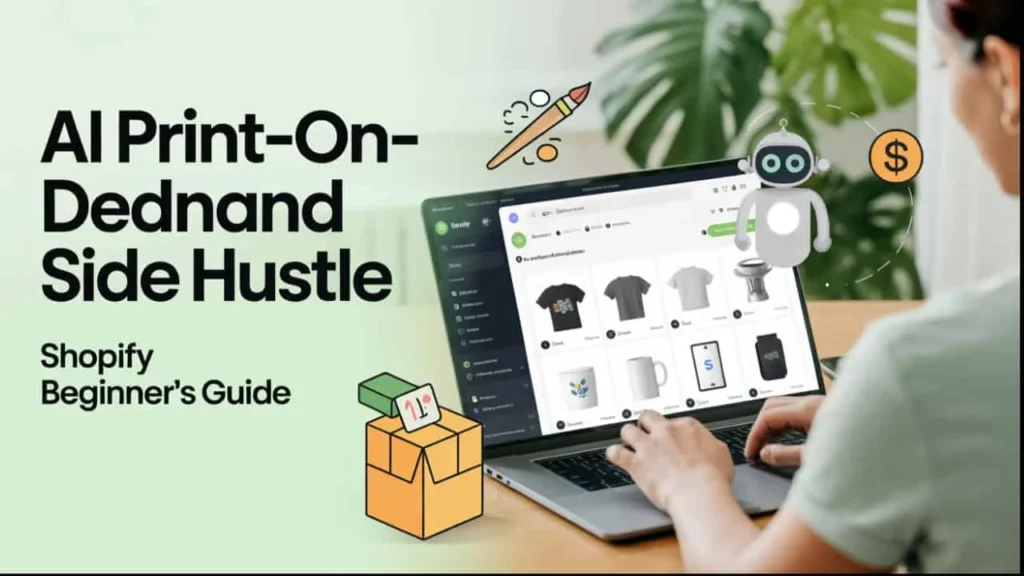Discover 7 game-changing trends shaping the future of AI startups in 2025. Learn how to build smarter, faster, and more trustworthy AI businesses in this expert guide.

So, if you are creating or investing in a startup dealing with AI, prepare for some real roller-coaster rides ahead because the game is changing rapidly, and the future is not bright, shining, but indeed blazing. Newer and bolder ideas are developed every day now, and the pace is so rapid that even veterans from within Silicon Valley termed it really exciting. But what does it really hold? What are the actual trends that matter and can really help you in making better decisions today?
Let’s take a look inside powerful trends shaping the future of AI startups. So come along as if we are having a nice chat over coffee, but with all powerfully hard-hitting insights you need to stay ahead.
1. Vertical AI: Niches Are the New Goldmines
The holy grail of today is not building a general-purpose ai but vertical ai-as it was done during the past. Contemporarily, ai startups are embracing solutions focusing more on industry aspect or delivering hyper-narrow point-product solutions.
For example, pathai in healthcare: instead of trying to address everything in ai, it just lives and breathes pathology-thus training better models, winning stars from clinicians, and most importantly, doing good.
What really matters to you? The “one-size-fits-all” is slowly fading away now. Whether you are working on legal tech, agriculture, or even supply chain management, the door remains open for ai startups that get really good at solving one difficult issue.
2. Explainability and Trust Are No Longer Optional
AI is not only about output; it includes forming an understanding of how that output was generated.
More than ever, businesses and consumers want transparency. “Because the AI said so” no longer suffices. That may have worked in 2017; in 2025 your startup will blow up if explainability is not its major characteristic.
A friend of mine runs a fintech AI startup. Last year, a banking client canceled a six-figure deal because the model could not adequately justify its assessment of credit risk. A painful lesson? Yes. A necessary one? Definitely.
If you are operating in this space, don’t only measure against performance metrics; also consider interpretability from day one.
3. The Rise of AI-Native Startups
AI-native startups are not just using AI—they are built on AI. They are thinking differently and doing things differently. They do not try to adapt any old models or old systems and they envision the world as if AI has always been there.
RunwayML is not merely a creative tool; it is actually a fundamentally new way of producing media. Adept AI creates agents that operate software on your behalf.
In 2025, the most explosive growth will come from startups that don’t consider AI as a mere add-on. They treat it as the very foundation.
4. The Battle for AI Talent Will Get Fierce
So if you are planning to hire AI engineers, consider yourself in for a bumpy ride, since the market is absolutely on fire.
Even the junior-most AI talent is making six-figure salaries; and senior researchers? Well, they are being lured away as if they were sports superstars. Being a small AI startup in times like these can be terrifying.
The hack, however, is to not go big with your entire team. The smartest startups capitalize on pre-trained models and hone their skills at prompt engineering, fine-tuning, or small innovations that give maximum bang for the buck.
One founder I know built his company up to $2M ARR with just two AI engineers. They leveraged open models and built something customers loved. It’s not a numbers game when hiring PhDs; it’s getting the right handful in there to execute smartly.
5. Regulation Will Shape How You Build
Let us be real- governments are catching up.
From the E.U. AI Act to proposed U.S. adoptions, regulation becomes no longer a maybe, but an actuality. AI startups must bake up compliance from their inception with the requirement.
Do not wait until Series A to think information privacy or model bias. That’s really late. The teams that will win in this new era will regard regulation as one of their competitive edges, not as a hurdle.
Some start-ups even claim that “compliance is a feature”. “Our tool not only is powerful and efficient; it’s trusted by regulators” will become a killer differentiator in 2025.
6. AI Infrastructure Is Getting Democratized
Remember when creating an AI startup meant something with deep pockets for cloud compute and GPUs? Things are changing, and fast.
Open-source models and low-code platforms, alongside tools like Hugging Face and LangChain, beckon a new generation of scrappy founders.
The kind of funding required to create a good AI product is no longer $10 million-it’s really creativity, a good sense of problem-solving, and great execution.
One solo founder I keep tabs on built a SaaS AI startup from the beaches of Goa; he launched and scaled the business to 20 K users without hiring a full team. We are bound to hear more stories like this.
7. Human-AI Collaboration Will Be the New Norm
This is a major thing. It is even fundamental, really.
The thought that A.I. will replace people is a thing of the past. This is actually a new form of collaborative activity, for instance co-pilots, not competition.
GitHub Copilot, Notion AI, and Jasper do not take people away. They instead multiply the human output. Startups that understand this will make it big.
Smart founders aren’t asking, “How can we have AI do this for us?” but rather, “How can AI make our team faster, smarter, more creative?”
This is the really empowering mentality. It’s the dividing line between one-hit wonders and tools that actually add value.
So, What Does This Mean for You?
Whether a founder, an investor, or simply an AI enthusiast, these trends are more than mere predictions. They are signals: signals that, if you pay attention to them, will change the way you build, fund, or utilize AI startups.
Here’s what I recommend:
- Focus on solving one sharp problem with vertical AI.
- Build trust through transparency.
- Go AI-native. Think in new paradigms.
- Use lean teams and smart tooling.
- Bake compliance into your product early.
- Leverage democratized infrastructure.
- Think collaboration over replacement.
If you follow some of these actions, then you future-proof your startup, but more importantly, you put it in a position to lead the next AI wave.
Future-proofing AI startups: It’s not about hype; it’s about value, trust, and execution.
And, honestly? They are just beginning.
Let’s create magic.
Create & Sell AI‑Generated Art: Top Generator Tools
Create and sell stunning AI-Generated Art with top tools. Explore platforms that turn creativity into…
Spark Creative Ideas: AI‑Powered Brainstorming Platforms
Unlock endless creativity with AI-powered brainstorming platforms. Discover smart platforms to spark ideas faster and…
Format and Publish eBooks Instantly with AI Tools
Discover how to format and publish eBooks instantly using AI tools. Learn step-by-step, see real…
Sell AI‑Generated Code Templates as a Freelance Service
by Arham Khan, blogger and AI enthusiast Learn how to profit by selling AI‑Generated Code…
AI print‑on‑demand side hustle with Shopify: A Beginner’s Guide
Start your AI print‑on‑demand side hustle on Shopify today—learn step-by-step, see real examples, and scale…
AI Storyboard Sketch Tool for Filmmakers: Create Storyboards in Seconds
Discover how an AI storyboard sketch tool for filmmakers lets you draft professional boards in…






